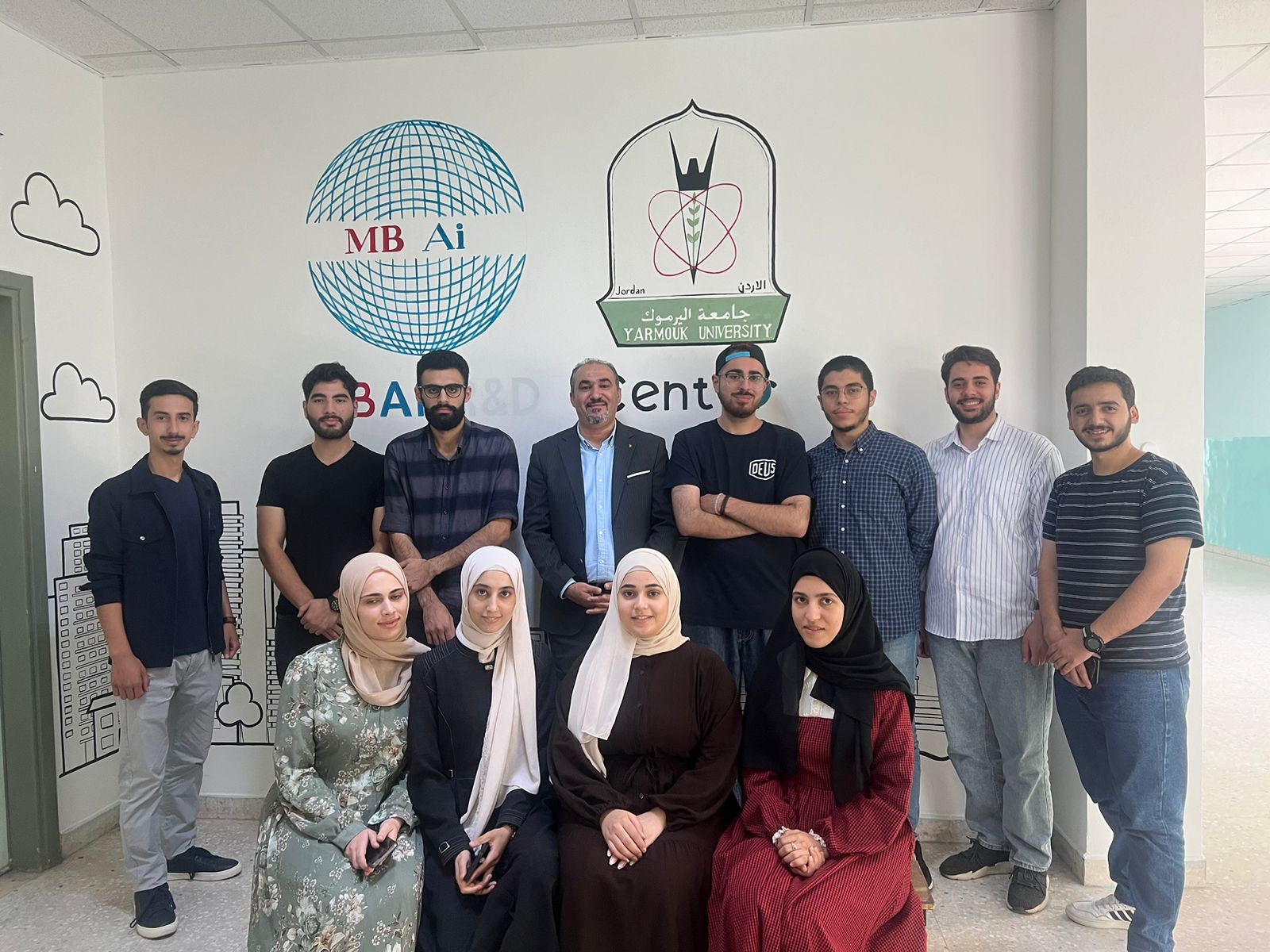Three student projects from the Artificial Intelligence Incubator at Yarmouk University won at the 2024 Entrepreneurship Hackathon, organized by the Ministry of Digital Economy and Entrepreneurship, aimed at highlighting technological innovation and supporting creative solutions to contribute to the development of the digital economy in the Kingdom and provide new job opportunities for the youth.
The winning projects will be incubated for 6 months to transform the ideas into a marketable product.
The first winning student project is named GaZeal and includes student Shaker Ksaah from the Computer Engineering Department at Al-Hijjawi College of Technology and student Mohammad Khabor from the Computer Science Department at the College of Information Technology and Computer Science. The project aims to address the challenges of unstable and unregulated gas delivery, such as sudden gas shortages, the risks of handling cylinders, and undetected gas leaks. By integrating advanced gas distribution systems and smart gas systems, the project ensures a safer and more efficient delivery process, enhances safety, reduces risks, and provides real-time monitoring for gas leak detection and improved gas usage.
The second project, SHAMS Cloud Infrastructure, includes students Mohammad Al-Rashdan and Ammar Abu Mahna from the Department of Information Systems at the Faculty of Information Technology and Computer Science, student Shaker Kassah from the Department of Computer Engineering at the Al-Hajawi Faculty of Engineering Technology, and student Mohammad Khabbour from the Department of Computer Science at the Faculty of Information Technology and Computer Science. It addresses the critical challenges of cloud infrastructure in Jordan through solar-powered data centers and computing platforms.
The project offers Infrastructure-as-a-Service and Platform-as-a-Service solutions powered by renewable energy, making cloud services more economical and sustainable for local institutions.
The project focuses on providing secure, locally-hosted data solutions with specialized features such as decentralized storage, AI/ML acceleration, and domain-centric platforms.By combining open-source software and specialized platforms for specific domains.
The project aims to serve various sectors, including government agencies, universities, and tech startups. The decentralized structure of the project ensures higher performance and security while maintaining data sovereignty within Jordan's borders. Additionally, the project represents an important step towards digital transformation in the field of cloud computing in Jordan.
The third project, MBAiYU MedX React, includes student Asher Abu Rab from the Department of Information Systems in the Faculty of Information Technology and Computer Science, student Mary Al-Rabadi from the Department of Biomedical Engineering in the Al-Hijjawi College of Technology, and student Rahaf Rababeh from the Department of Computer Science in the Faculty of Information Technology and Computer Science.
The project focuses on predicting drug side effects using deep learning and machine learning techniques, as drugs can have a significant impact on patient health. Therefore, understanding the potential harmful effects is of utmost importance. The project relies on available clinical data to develop a predictive model that helps healthcare professionals anticipate the side effects of medications.
The project aims to improve patient safety and enhance treatment outcomes through informed decisions based on in-depth analysis of available data. It is worth mentioning that the university's artificial intelligence incubator is supported by a financial software systems company in Britain, and the project proposals were supervised by Dr. Mohamed Ashraf Al-Atoom from the Faculty of Information



